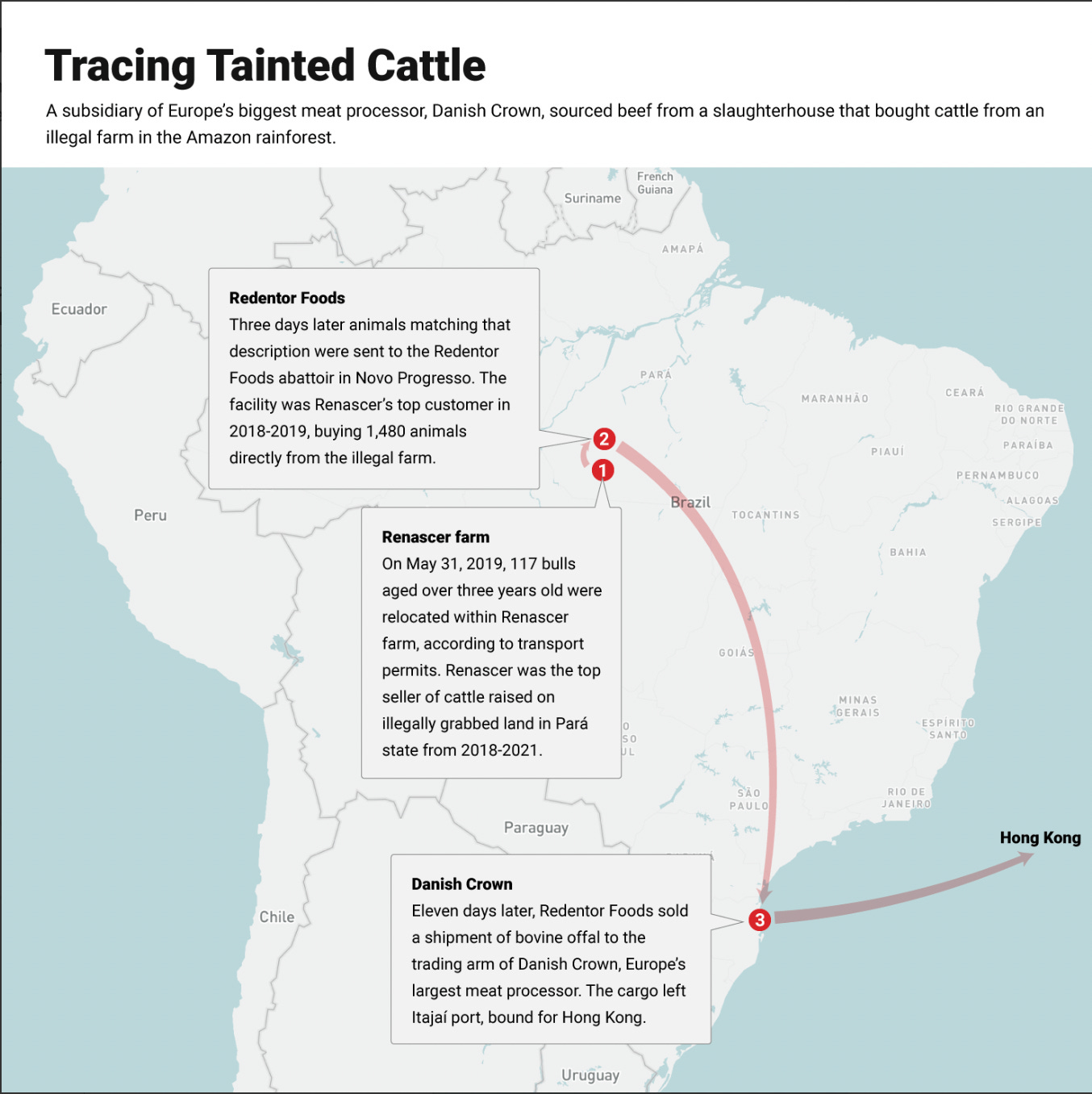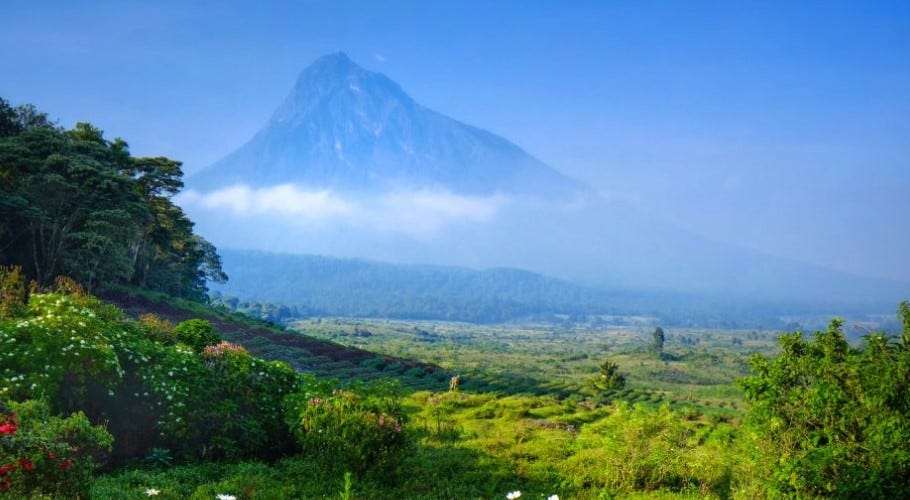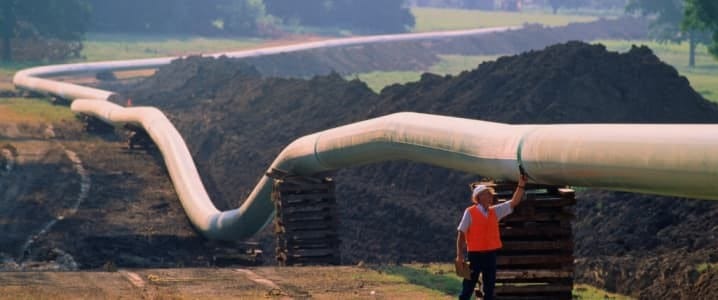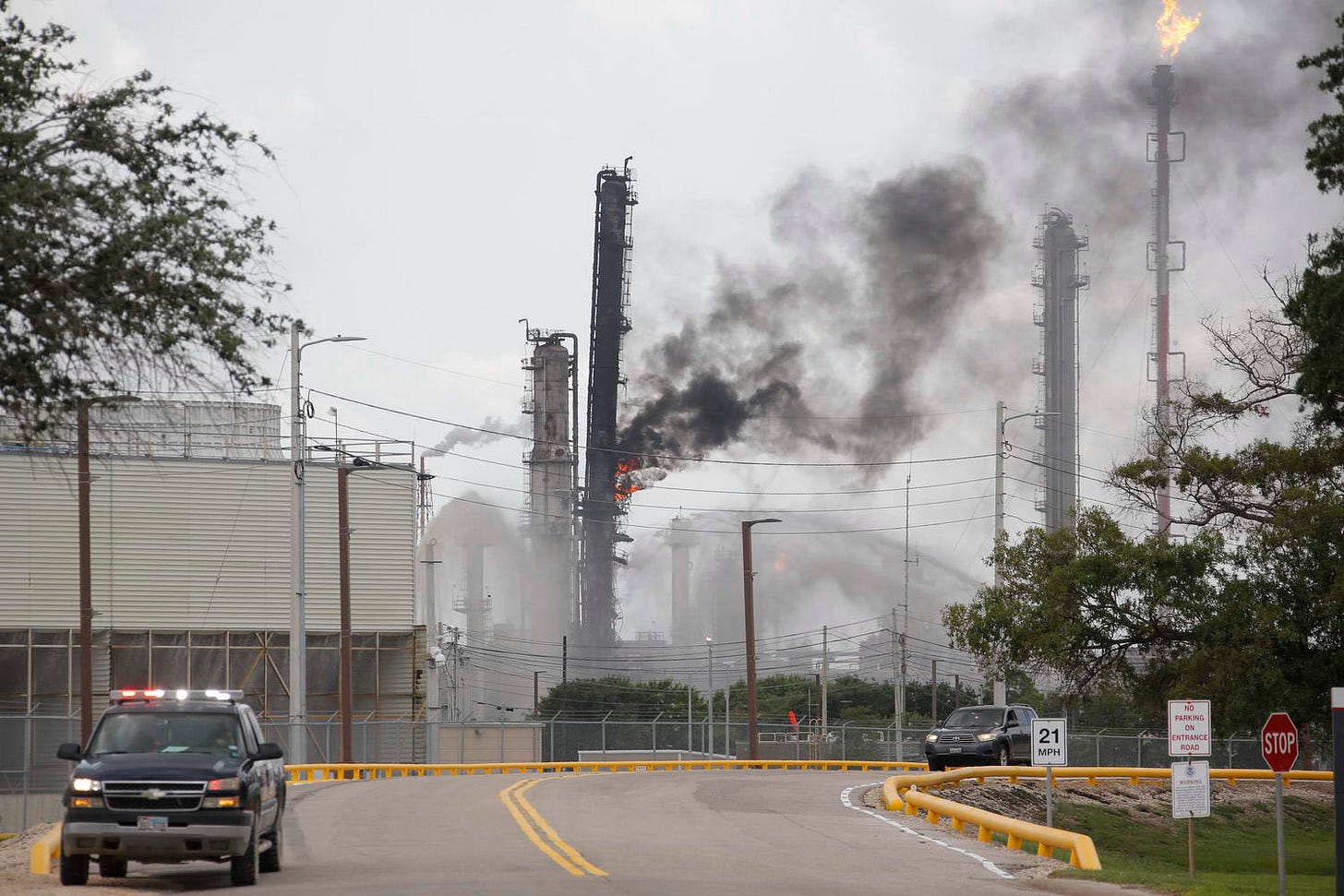Below is my round-up of some interesting stories that have caught my eye in recent days at the intersection of climate, human rights, and the law.
How illegal land grabs by cattle ranchers in the Amazon are destroying the planet
Allan de Abreu and the Organized Crime and Corruption Project dig deep to explain how when we eat meat in the United States and Europe we help destroy the planet. Despite zero tolerance pledges against deforestation by the Brazilian meat industry, 90% of the deforestation in the Brazilian Amazon is due to cattle ranching. Worse, much of the land used for cattle ranching is stolen from Indigenous reserves. The article reports that Indigenous peoples literally are afraid for their lives because of the intimidation tactics used by ranchers. The global beef industry is implicated as the meat raised on stolen Indigenous lands in Brazil makes its way to the dinner table in roughly 100 countries. Powerful.
Dismal development: The Congo decides to open its rainforests to oil drilling
Leaders of the Democratic Republic of the Congo have decided to auction off the country’s rainforests for oil and gas drilling in areas that reach into Virunga National Park – a UNESCO World Heritage site and a sanctuary for endangered mountain gorillas. This is after the United States and other wealthy nations continue to refuse to adequately finance a fund to compensate the poorest and least culpable countries from exploiting their natural resources. This article exposes the deep inequities built into the rigged international economic system. Why should the poorest countries forego the development of natural resources when the rich nations like the US emit massive pollution and do virtually nothing to stop it? Until there is an equitable global plan to control global greenhouse gas emissions we can expect to see more decisions to drill like this.
Media outlets are still ignoring what might be the worst spill in US history
New estimates show that Colonial Pipeline’s 2020 spill of 1.2 million gallons of gas into the Oehlet Nature Preserve in North Carolina was the worst in U.S. history. Colonial is a subsidiary of Shell and Koch Industries and still hasn’t cleaned up the mess that was discovered by teenagers eighteen days after the 5,500-mile pipeline’s rupture. The story has gone largely unreported by the big media outlets. For the worst gas spill in US history, Colonial paid a pathetic $5 million fine; since the spill, it has had revenue of $1.3 billion. Because of a lack of enforcement, the message is simple: it often pays to pollute.
While the oil industry reports record profits, most are suffering more than ever
The same corporate power that protects record breaking fossil fuel profits at the expense of the planet is also eating away at the standard of living of most Americans. We are by far the wealthiest nation on earth with the most inequality. Ezra Klein’s recent op-ed in the New York Times had some startling statistics about how hard it now is to live comfortably in the United States.
Klein points out that the median home price in 1950 was 2.2 times the average annual income; by 2020, it was six times the average annual income. Health care and child care are becoming more expensive. Average child care spending per child grew by about 200 percent from 1972 to 2007. Family premiums for employer-based health insurance jumped by 47 percent between 2011 and 2021, and deductibles and out-of-pocket costs shot up by almost 70 percent. The average price for brand-name drugs on Medicare Part D rose by 236 percent between 2009 and 2018. Between 1980 and 2018, the average cost of an undergraduate education rose by 169 percent. The lesson: we are in desperate need of elected leaders who care about people more than protecting the profits of large corporations.
How the overturning of Roe is even worse for women living in pollution hotspots
The repeal of Roe will endanger lives for countless reasons but this reason really caught my eye. An article from Naveena Sadasivam & Eve Andrews of Grist shows how pregnant people in hyper-polluted areas denied access to abortion are made even more vulnerable. One town in the anti-abortion state of Texas has a “high concentration of chemical facilities, including an ExxonMobil refinery that routinely spews hazardous chemicals and most recently caught fire in 2021. The article concludes: “In parts of Baytown, the rate of maternal morbidity, a term that describes unexpected outcomes at the time of labor and delivery and lead to significant consequences for health, is almost double the state average.”
The conclusion: pregnant women in polluted areas are more susceptible to complications including death as are the babies born to them. Without access to abortion, the theologians-in-robes on the US Supreme Court are subjecting people to potentially dangerous pregnancies without their consent.








Thank you for broadening your reporting on bad guys consciously poisoning our world.
Would these countries be as likely to allow the exploitation of rainforests for oil production, if they hadn’t been buried up to their eyeballs in IMF debt?